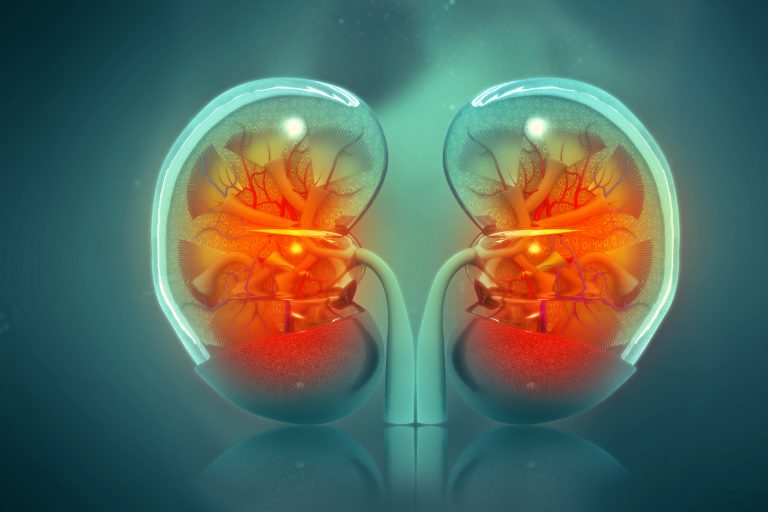
A community-based study to trial genetic testing to identify those at higher risk of chronic kidney disease (CKD) due to variants in the apolipoprotein L1 (APOL1) gene, significantly more prevalent among African-Americans than other ethnicities, achieved positive results in terms of lifestyle changes and other risk reductions.
The study was led by researchers at Icahn School of Medicine at Mount Sinai, New York, and showed that the trial prompted greater reductions in systolic blood pressure—which contributes to kidney damage, more kidney screening to monitor risk, and increased positive behavior changes to improve health in those affected compared with those found not to carry risk mutations.
CKD affects 26 million adults in the U.S. and African-Americans are disproportionately impacted and have higher risks of developed CKD and end-stage kidney disease than people of European ancestry. While it is likely that a significant proportion of the increased risk experienced by African-Americans is due to socio-economic disparities in the health system, there is also a strong genetic component.
High-risk variants of APOL1, predisposing carriers to kidney disease, are found in one of seven people of African ancestry but are nearly absent in people of European ancestry. This is thought to be because mutations in APOL1 help to protect carriers against sleeping sickness caused by trypanosomal infection and so have been subject to positive selection in this region for some time, where the disease is endemic.
Few trials have tested the value of widespread genetic testing for these variants, despite the link with CKD being found in 2010 and the potential health benefits for carriers linked to early risk assessment. To try and remedy this and test the value of more widespread testing, Carol Horowitz, a professor and clinician at Mount Sinai, and colleagues set up a community-based study to offer genetic testing for pathogenic APOL1 genotypes amongst patients of African ancestry with high blood pressure, which can be an early sign of being a carrier of the disease-causing variants.
Overall, 2050 African-Americans were randomly assigned to take part in the study between 2014 and 2016 and were followed up until 2018. Of these, 255 joined the control group and had follow-up, but no genetic testing. Of the remaining 1795 who underwent genetic testing, 234 were found to be high risk and 1561 low risk, according to their APOL1 genotype.
At 12 months following testing, those identified as high risk had a significantly greater blood pressure reduction than those in the low-risk group, they were also twice as likely to undergo regular urine testing to test kidney function. The genetic testing also appeared to incentivize those in the high-risk group to be better at implemented lifestyle changes that could reduce the risk of developed CKD such as diet improvements and increased exercise, as well as better compliance with blood pressure medications.
“These results suggest we are headed in the right direction. Genetic testing is a particularly sensitive issue for the African American community. African Americans have a higher risk of kidney disease development and progression. While race is a social construct, and this disparity is multifactorial and structural, ancestry has genetic components,” said Girish N. Nadkarni, the Irene and Dr. Arthur M. Fishberg Professor of Medicine at Icahn Mount Sinai and a co-lead author of the study, which is published in JAMA Network Open.
“For many years, researchers have wondered whether reporting APOL1 genetic test results would help improve clinical management. This is the first pragmatic randomized clinical trial to test this out.”
The success of this initial study has led to an expansion and continuation on a broader scale. The next stage of the study, called GUARDD-US, will recruit more participants and include more locations.













